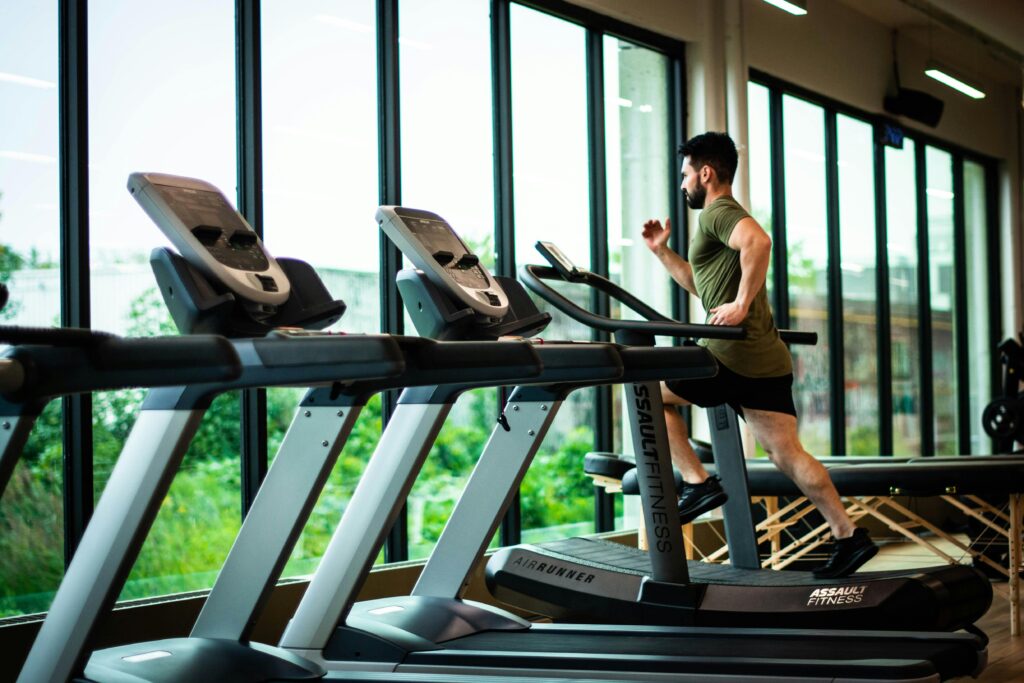Introduction
We’ve all heard it before: Do cardio, it’s beneficial to you. But what if I informed that aerobic exercise doesn’t just improve your endurance or help you lose a few pounds, but it plays a significant part in maintaining your immune system good shape?
That’s right. There’s a fascinating link between exercise that is cardiovascular and your immune system. It’s been discovered that regularly moving your body by jogging, cycling or swimming, as well as dancing can be the difference between being healthy throughout flu season and catching every cold that comes around.
Let’s look at how aerobic exercise can affect your immune system in addition to the reasons you need be concerned.
Popular Google Search Queries Related to Cardio (2024-2025)
Before we dive into the subject Here are a few of the most popular Google searches on cardio that been the inspiration for this article. They reflect the questions that real people are thinking about right now:
- “Is cardio good for your immune system?”
- “How much cardio is too much?”
- “Best cardio exercises for immunity”
- “Can running boost your immune system?”
- “Cardio vs strength training for immunity”
- “How does exercise help the immune system?”
- “What happens to your body after cardio?”
- “Daily cardio benefits”
- “Why do athletes get sick after a marathon?”
- “How long should cardio be for immune health?”
Let’s explore the science and the practical relevance of these questions.
1. What Exactly Is “Cardio”?
“Certainty” (short in the sense of cardiovascular exercises) is any physical exercise that elevates the heart rate and improves blood flow. This includes:
- Walking at a fast pace
- Running or jogging
- Cycling
- Swimming
- Rowing
- Aerobic dancing
- Jump rope
What they share is the fact that they force your lungs and your heart perform better — which helps to deliver oxygen and nutrients to cells at a higher rate.
Here’s where it becomes interesting: the same increased circulation allows your immune cells to move more efficiently across your body and identify the threats of bacteria and viruses.
2. The Immune System: Your Body’s Defense Force
Imagine your immune system as an army that is highly trained. It’s comprised of white blood lymph nodes, cells bone marrow, other organs that work together to identify and eliminate invading organisms.
When you exercise — particularly by doing cardio, you’re basically providing reinforcements to this army. The increased the flow of blood caused by cardio ensures that immune cells are moved more effectively, which boosts the body’s surveillance.
Yes, aerobic exercise is beneficial to the immunity. However, there’s an ideal point, and will be discussed in just a few minutes.
3. How Moderate Cardio Boosts Your Immune System
Moderate cardio is known to have many benefits for the immune system:
Improved Circulation
The faster your blood circulation and the more quickly immune cells can reach the sites of infection. Cardio increases circulation, so that the immune response can be quicker and more efficient.
Reduced Stress Hormones
Regular exercise can reduce cortisol, also known as the “stress hormone.” Chronic stress can affect your immune system But regular aerobic exercise keeps cortisol levels in check.
Lower Inflammation
Cardio can help regulate inflammation markers that are present in your body. Chronic inflammation can reduce health and lead to developing illness — therefore, cutting down on it can help keep your immune system robust.
Better Sleep
The exercise routine helps you fall asleep quicker and sleep betterwhich is essential for repairing your immune system and strength.
Lymphatic Flow
Your lymphatic system is moving. It does not have an “pump” like the heart therefore it depends on physical exercise to circulate lymphthat carries white blood cells, and eliminates the toxins.
4. Can Too Much Cardio Weaken the Immune System?
This is where things become more nuanced.
Yes it is true that excessive cardio can affect our body’s immune system. This is especially relevant in the following situations:
- Training for the marathon
- High-volume endurance sports
- Training without rest
Why? Because exercise that is prolonged and intense causes stress to the body. When you exercise for long periods of time, your body releases adrenaline and cortisol that when in large amounts, can inhibit immune cell production and hamper their ability to function.
It’s also known as “open window theory open window theory” After an intense workout, you’ll notice the possibility of a brief drop in immunity (usually 3 to 72 hours) in which you’re more prone to infections.
This is why marathoners often have colds after races.
5. Finding the Sweet Spot: How Much Cardio Is Enough?
The CDC suggests at the very least:
- 150 minutes moderate intensity cardiovascular exercise each weekly
(e.g. Brisk walking or gentle biking)
-or — OR — - 75 minutes of intense cardio each week
(e.g., running, running, or intense exercise routines that incorporate HIIT)
You can split it in any way you want -30 minutes, 5 days per week is the common objective.
To boost your immune system, moderate and consistent aerobic exercise is ideal. Consider it providing your body with a boost every day without destroying it by stress.
6. What Type of Cardio Is Best for Immune Support?
Based on recent research and athletes’ experiences the following forms of exercise are particularly beneficial to your immune system.
Walking or Light Jogging
Sustainable and low-impact, ideal for all levels of fitness.
Cycling
Great for heart health and not excessive joint strain.
Swimming
Increases endurance and encourages full-body movements without overheating.
Dance or Aerobic Classes
They release endorphins, combat anxiety, and help improve the immune system.
Hiking
Combining the advantages of cardio and the benefits of nature exposure which improves the immune system.
7. Can Cardio help in recovering from illness?
You may be thinking, “Should I still do cardio if I’m feeling under the weather?”
The answer is contingent on the degree of the symptoms. If you are experiencing mild symptoms such as chronic fatigue or congestion in your nose, light cardio like walking could actually to improve circulation and lessen symptoms.
But, if you’ve:
- Fever
- Chest congestion
- Extreme fatigue
- Muscle pains
…it’s ideal to relax and allow your immune system to work without the additional stress of exercising.
After recovering, return to moderate exercise will help to restore the balance of your immune system and boost your overall strength.
8. Why Do Some Athletes Get Sick More Often?
Have you ever wondered why elite athletes who are extremely fit can get sick after competing?
It’s all down to the overtraining syndrome. If you are training hard and don’t get sufficient rest or recuperation, your body’s immune system isn’t able to keep up.
Their bodies are always overloaded and inflamed by stress hormones, making them at risk of infection.
This is the reason rest days, recovery days, and a balanced diet are as crucial as working out.
9. Nutrition + Cardio = Immunity Power Combo
The mere exercise alone isn’t enough. If you want to maximize your immunity boost, combine cardio with healthy nutrition:
- Vitamin C (citrus bell peppers, citrus)
- Zinc (pumpkin seeds, chickpeas, and chickpeas)
- Protein (for the production of antibodies)
- Fats that are healthy (omega-3s to lower inflammation)
10. Final Thoughts: Is Cardio Good for Your Immune System?
Absolutely -but only if done in moderation.
Cardio improves circulation, eases anxiety, boosts sleep, and helps strengthen your body’s defenses. However, it’s all about the balance. A lack of movement can make your immune system weak. Insufficient movement can cause it to weaken.
TL;DR: Key Takeaways
- Cardio boosts the immune system, reduces stress, and reduces inflammation.
- Intense cardio or overtraining without enough rest can lower immunity.
- Make sure you do 150 minutes of moderate exercise per week.
- The best cardio for your immune system is cycling, walking, swimming and dancing, as well as walking.
- Combining cardio with restful nutrition, rest, and drinking plenty of water.
Real People Also Ask (More Related Search Queries)
Here are some additional searches that come from Google Trends that may be useful:
- “Is 30 minutes of cardio a day enough?”
- “What happens to your immune system after exercise?”
- “Why do I get sick after working out?”
- “How to boost the immune system naturally?”
- “Cardio before or after weights for immunity?”


